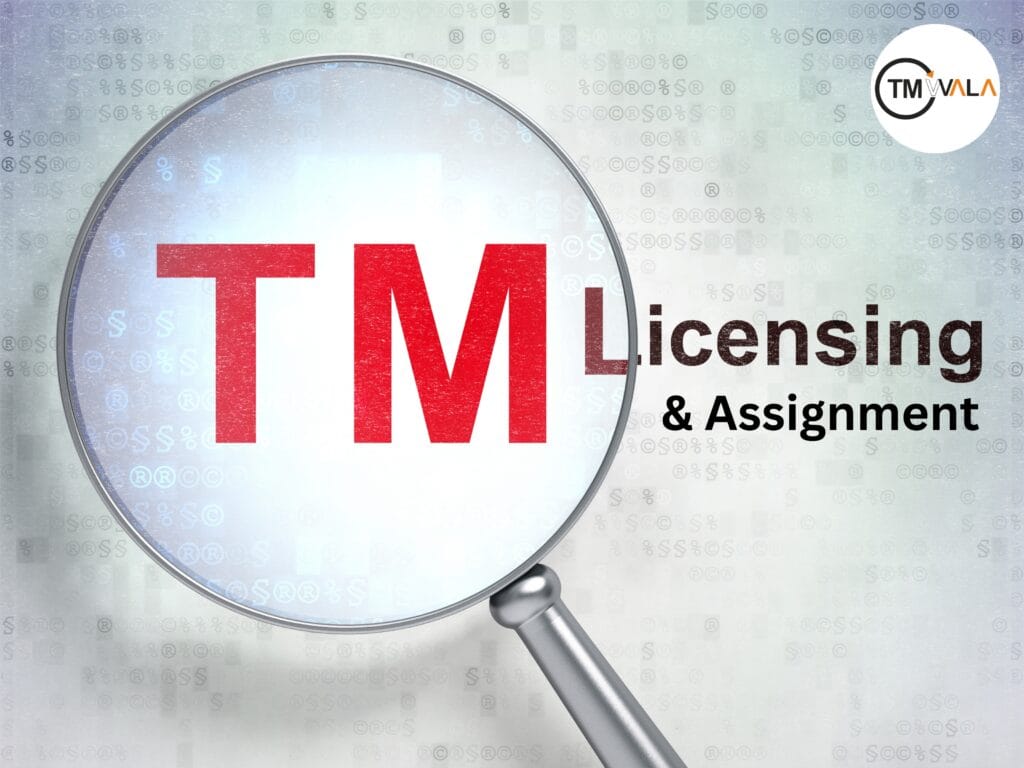Introduction
Trademark licensing and assignment are crucial aspects of trademark management that allow trademark owners to leverage their intellectual property for commercial gain. In India, these processes are governed by specific legal provisions and procedures. We will provide a detailed guide to trademark licensing and assignment in India, explaining the relevant sections of the Trade Marks Act, 1999, the key concepts, processes involved, and frequently asked questions (FAQs).
What is Trademark Licensing?
Trademark licensing is the process through which the owner of a trademark (the licensor) permits another party (the licensee) to use the trademark under certain conditions. This arrangement allows the licensee to benefit from the trademark’s reputation and goodwill while providing the licensor with a revenue stream. Trademark licensing and assignment are both ways to commercialize intellectual property strategically.
Key Aspects of Trademark Licensing
1. Types of Licensing Agreements
Trademark licensing agreements can vary based on the nature and scope of the license. Common types include:
- Exclusive License: Grants the licensee exclusive rights to use the trademark within a specified territory or market segment, excluding even the licensor from using the mark in that area.
- Non-Exclusive License: Allows multiple licensees to use the trademark, including the licensor.
- Sole License: Similar to an exclusive license, but the licensor retains the right to use the trademark as well.
2. Terms of the Licensing Agreement
The licensing agreement should clearly outline:
- Scope of Use: Specifies how and where the trademark can be used.
- Duration: Defines the period for which the license is valid.
- Royalty Payments: Details the financial arrangements, including royalties and payment terms.
- Quality Control: Includes provisions for maintaining the quality and standards associated with the trademark.
- Termination Conditions: Outlines the conditions under which the agreement can be terminated.
3. Legal Framework for Licensing
The Trademarks Act, 1999, governs trademark licensing in India. Key provisions include:
- Section 48: Provides that a registered trademark can be licensed or assigned.
- Section 49: Details the registration of license agreements with the Trademark Registry.
These sections form the backbone of India’s approach to trademark licensing and assignment.
What is Trademark Assignment?
Trademark assignment is the process by which the owner of a trademark (the assignor) transfers their rights and interests in the trademark to another party (the assignee). Unlike licensing, which allows the assignor to retain ownership, assignment results in the complete transfer of ownership. Hence, understanding the difference between trademark licensing and assignment is vital for managing rights.
Key Aspects of Trademark Assignment
1. Types of Assignment
A trademark assignment can be:
- Full Assignment: Transfers all rights and interests in the trademark to the assignee.
- Partial Assignment: Transfers only specific rights or territories.
2. Process of Assignment
The assignment process typically involves:
- Drafting an Assignment Agreement: The agreement should include details of the trademark, the parties involved, the terms of the assignment, and the consideration.
- Execution of the Agreement: Both parties must sign the agreement.
- Registration with the Trademark Registry: The assignment must be recorded with the Trademark Registry to be legally effective.
3. Legal Framework for Assignment
The Trade Marks Act, 1999, provides the legal framework for trademark assignment:
- Section 37: Provides for the assignment of registered trademarks.
- Section 38: Requires the assignment to be recorded with the Trademark Registry to be effective.
The Process of Trademark Licensing and Assignment
1. Trademark Licensing Process
a. Negotiation and Drafting
- Negotiation: Parties negotiate the terms of the licensing agreement, including scope, duration, and financial arrangements.
- Drafting: A formal licensing agreement is drafted, incorporating all agreed-upon terms and conditions related to trademark licensing and assignment.
b. Execution
- Signing: Both parties sign the licensing agreement.
- Registration: The agreement should be registered with the Trademark Registry under Section 49 of the Trademarks Act, 1999, to ensure legal protection and enforceability.
c. Monitoring and Compliance
- Quality Control: The licensor must monitor the licensee’s use of the trademark to ensure compliance with quality standards.
- Renewal and Termination: The parties should manage the renewal or termination of the agreement as per the agreed terms.
2. Trademark Assignment Process
a. Preparation and Agreement
- Drafting: The assignor and assignee draft an assignment agreement outlining the details of the transfer.
- Signing: Both parties sign the agreement.
b. Registration
- Filing: The assignment agreement is filed with the Trademark Registry for recordal under Section 38 of the Trade Marks Act, 1999.
- Fees: Pay the requisite fee for recording the assignment.
This procedural clarity helps facilitate smooth trademark licensing and assignment in India.
c. Post-Assignment Actions
- Update Records: Ensure that the trademark records are updated with the Trademark Registry to reflect the new owner.
- Notify Parties: Inform relevant parties, including business partners and licensees, of the change in ownership.
Practical Tips for Trademark Licensing and Assignment
1. Ensure Clarity in Agreements
- Detail Terms: Clearly define the scope, duration, and terms of use or transfer in licensing and assignment agreements.
- Consult Legal Experts: Engage trademark attorneys to draft and review agreements to ensure legal compliance and protection in trademark licensing and assignment matters.
2. Register Agreements Promptly
- Timely Registration: Register licensing and assignment agreements with the Trademark Registry promptly to ensure enforceability and protect rights.
3. Monitor Compliance
- Quality Control: For licensing agreements, regularly monitor the licensee’s use of the trademark to maintain quality standards.
- Enforce Rights: Take appropriate action if there is non-compliance or misuse of the trademark. This applies to both trademark licensing and assignment contexts.
4. Update Trademark Records
- Notify the Registry: Ensure that any changes in ownership or licensing arrangements are recorded with the Trademark Registry to reflect the current status.
Conclusion
Trademark licensing and assignment are essential tools for managing and monetizing intellectual property in India. Understanding the legal framework, processes, and requirements for these activities is crucial for protecting trademark rights and leveraging their value. By ensuring clear agreements, timely registration, and compliance with legal standards, trademark owners can effectively navigate the complexities of trademark licensing and assignment, ensuring the continued success and protection of their brands.
FAQs on Trademark Licensing and Assignment in India
1. What is the difference between trademark licensing and trademark assignment?
Trademark licensing allows the licensee to use the trademark while the licensor retains ownership. A trademark assignment transfers all rights and ownership of the trademark to the assignee.
2. How do I register a trademark licensing agreement in India?
A trademark licensing agreement should be registered with the Trademark Registry under Section 49 of the Trademarks Act, 1999. Both parties must file the agreement along with the requisite fee.
3. What is required for a valid trademark assignment?
A valid trademark assignment requires a formal agreement between the assignor and assignee, signed by both parties. The assignment must also be recorded with the Trademark Registry under Section 38 of the Trademarks Act, 1999.
4. Can a trademark be assigned partially?
Yes, a trademark can be assigned partially, transferring only specific rights or territories while retaining other rights.
5. What are the legal consequences of not registering a trademark assignment?
If a trademark assignment is not registered, it may not be legally effective, and the new owner may not be recognized officially. Registration ensures that the assignment is recorded and enforceable.
6. Can a trademark licensing agreement be terminated before its expiry?
Yes, a trademark licensing agreement can be terminated before its expiry if the agreement includes termination conditions or if both parties agree to terminate it.
7. What is the role of the Trademark Registry in trademark licensing and assignment?
The Trademark Registry records licensing and assignment agreements to provide legal recognition and enforceability. It ensures that the current status of ownership and licensing is reflected in official records.
8. How do I ensure compliance with quality standards in a licensing agreement?
Include quality control provisions in the licensing agreement and regularly monitor the licensee’s use of the trademark to ensure adherence to the agreed standards.
9. Can an international trademark be licensed or assigned in India?
Yes, international trademarks can be licensed or assigned in India if they are registered or recognized under Indian law. The relevant agreements must be recorded with the Trademark Registry.
10. What happens if a trademark is licensed or assigned without proper registration?
Licensing or assignment without proper registration may lead to legal disputes and may not be enforceable. Proper registration with the Trademark Registry is essential to ensure legal protection and recognition in trademark licensing and assignment situations.















